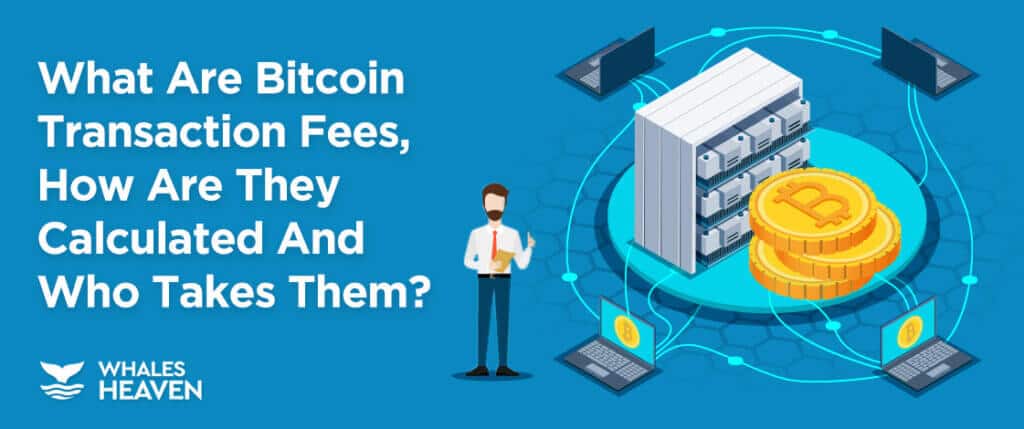
You’ve managed to receive an amount of Bitcoin from a friend or family member, some time has passed and you want to send it to someone else, but then you noticed in your non-custodial wallet that you’d need to pay some transaction fees to send those Bitcoin.
What are those fees, why do you need to pay them, why are they so high sometimes, and who’s taking them?
What are the Bitcoin transaction fees?
It is the amount of Bitcoin that you need to pay to send money (Bitcoin) from one address to another, where the sender always has to pay that fee. The receiver does not.
You’re probably wondering why you should pay any fee, considering that you thought Bitcoin was decentralized and that there’s no one individual, or company, that controls it to impose any amount of fees.
Why do you need to pay a transaction fee? Who takes it?
The reasoning behind this is simple and can be better explained with an example and a comparison. If we take a look at your average bank, it handles all transactions between two individuals, where there are people and systems at that financial institution, that need money to live and operate well, working to make sure that the sender has the appropriate amount of funds to send, to then record that transaction, and finally updating both parties’ balances within the bank’s database. The bank would need a way to get money to pay off those workers and other connected expenses, and one of those methods is to collect on transaction fees.
Comparing that to Bitcoin, the operations are almost the same, where there are people with general or specialized devices that collect, confirm and record Bitcoin transactions. These people are what’s known as “Miners”, and they also have their expenses that need to be paid off. That’s why there are fees associated when you try to send Bitcoin, which are transferred to those people for their efforts, alongside what’s known as a “block reward”.
Why are the Bitcoin transaction fees so high (or so low)?
There are multiple dynamic factors, all of which are inter-connected, that affect the fee amount. The technical reasoning has to do with the average number of transactions Bitcoin can process, which is related to what’s referred to as the “block size” as well as the average speed of a new block being found.
Those technical limitations are made apparent when there are a lot of people broadcasting their transaction to the Bitcoin network, which leads to congestion within that network, resulting in people increasing the fee they’re willing to pay for their transaction to get confirmed faster, more specifically, to get it confirmed within the next block, so Miners priorities transactions that pay more than another, and fit it within the upcoming Block, which can only hold a certain amount of transactions, that would get confirmed within an average of ten minutes.
So as a result, the average bitcoin transaction fee amount would change depending on the network’s traffic, and how many people would increase their fee-pay to increase their chances of getting their transaction confirmed.
You may be wondering if there are ways to decrease your fee expenses to a minimum. Well, there’s the Taproot update coming up that would help decrease fees, and there’s also the Lightning Network that speeds up transaction times too! Advancements in this area are in constant development.